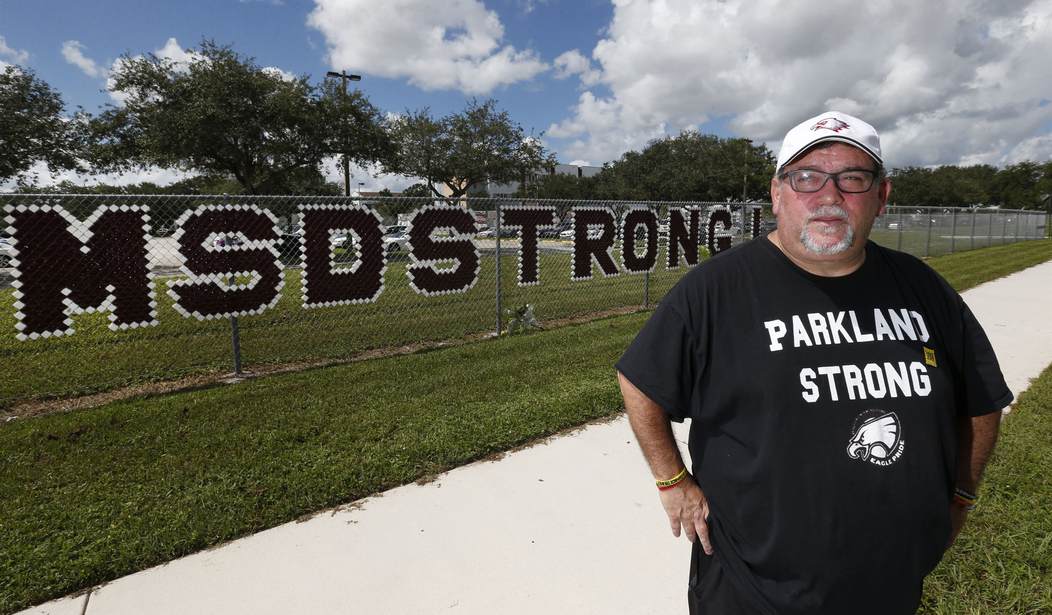A tentative agreement has been reached between families of students and staff killed in the mass shooting at Marjory Stoneman Douglas High School in Parkland, Florida, and the Department of Justice. The United States government will pay out $127.5 million.
Three years ago, a madman entered the high school and opened fire with a semiautomatic rifle. A former student, Nikolas Cruz, pleaded guilty to killing 17 students and staff members and attempting to kill 17 others in the 2018 mass shooting last month. Cruz is now 23 years old. He will face a jury now, after originally pleading not guilty. Prosecutors at the Broward State Attorney’s office said in the past that they will seek the death penalty. A minimum of life in prison without the possibility of parole is possible. Family members of the victims were present during his court appearance.
Broward County Circuit Judge Elizabeth Scherer asked Mr. Cruz numerous times if he understood the charges against him and if he needed more time to consult with his lawyers before entering his plea. Mr. Cruz said he understood the possible sentence and each charge.
Wearing glasses, a blue dress shirt, black sweater vest and a mask, Mr. Cruz kept his head down for much of Wednesday’s hearing, looking up at the judge to answer simply, “Yes, ma’am,” “Yes, I do” and “Guilty.” He stood hunched over between his attorneys.
In a brief statement, Mr. Cruz took off his mask to say he was sorry and spoke against drug abuse and violence.
“I am very sorry for what I did, and I have to live with it every day,” he said.
There were red flags over Cruz’s behavior prior to the shooting.
About five weeks before the shooting, a person close to Mr. Cruz warned the FBI through a tip line that she was concerned he would “get into a school and just shoot the place up,” and that “he’s going to explode.” The caller offered stark details of Mr. Cruz’s propensity for violence and troubled past.
Several months before the call to the FBI’s tip line, a Mississippi bail bondsman reported to the FBI that a commentator with the name “nikolas cruz” posted a comment on a YouTube video, saying: “Im going to be a professional school shooter.” The FBI visited the bondsman and investigated but didn’t link the comment to Mr. Cruz.
Unfortunately, this information wasn’t shared with the FBI’s Miami field office to investigate. In the days after the shooting, FBI Director Christopher Wray apologized as he acknowledged that the tips were not properly handled.
Fred and Jennifer Guttenberg sued the DOJ in 2018. They alleged that the FBI knew the shooter was “going to explode” at some point and did nothing to stop him. Other parents and families joined the lawsuit. A January trial date had been set.
The lawsuits alleged that FBI employees were negligent and violated bureau protocol. The case had been slated to go to trial in January, over the government’s objections.
“It has been an honor to represent the Parkland families who, through their immeasurable grief, have devoted themselves to making the world a safer place,” said Kristina Infante, lead attorney for the victims. “Although no resolution could ever restore what the Parkland families lost, this settlement marks an important step toward justice.”
Families of victims and surviving victims reached a $25M settlement with Broward County School District last month.
The $25 million will go to 52 families and victims of the mass shooting and be paid in three annual installments, according to David Brill, the families’ lawyer. It settles 52 of 53 lawsuits filed against Broward County Public Schools for negligence over the shooting, he said.
Mr. Brill said the parties are finalizing documentation and declined to provide details as to how the $25 million is divided up. The negotiations over the settlement took many months, Mr. Brill said.
Broward County Public Schools, Florida’s second-largest school district, said the district doesn’t comment on pending litigation.
While the financial settlements were slow in coming, we know that the emotions from this horrific tragedy brought immediate action from anti-gun activists.
Some survivors of the shooting have become political activists, championing gun-control issues. Their activism, along with pressure from victims’ families, in the weeks following the shooting raised pressure on Florida lawmakers to act, and the state passed a law boosting the age at which someone in Florida can buy a gun to 21 years old from 18. It also imposed a three-day waiting period for gun purchases.
Everytown for Gun Safety, for example, a nonprofit largely financed by Michael Bloomberg, arranged bus tours around the country for student activists from Marjory Stoneman Douglas High School. The immediacy of the nationalizing of the local tragedy was an opportunistic grab for fundraising and exposure for the high school students who wished to lobby politicians on gun-grabbing legislation. CNN even held a town hall event where Senator Marco Rubio was called a murderer.
Financial settlements won’t ease the grief felt by families who lost loved ones or victims who survived the mass shooting. They are all scarred for life. It does, however, hold the FBI accountable with a huge settlement agreement. How many times do we hear that some deranged killer was on the radar of the FBI and other law enforcement after a horrendous event happens? We frequently hear that. Tip lines only work if the tips are taken seriously and the FBI finds a way to act on them. People did the right thing and came forward with warnings, only to have the FBI drop the ball.









Join the conversation as a VIP Member